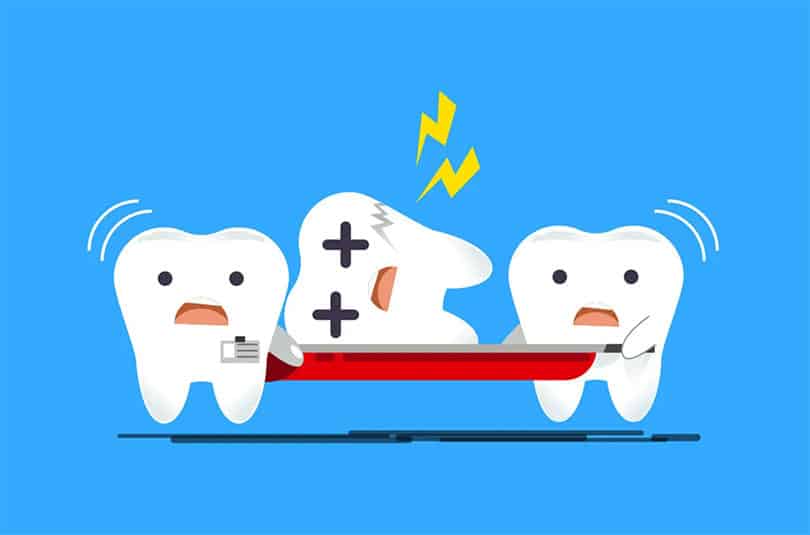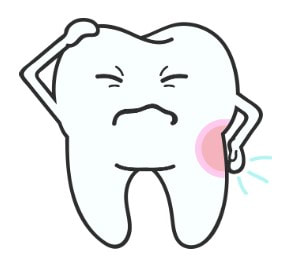Toothaches can be caused by various factors such as tooth decay, dental abscess, gum disease, or even a cracked tooth. If you experience a sudden toothache, follow these steps:
- Rinse your mouth with warm saltwater to alleviate discomfort.
- Gently floss around the affected tooth to remove any food particles that might be causing irritation.
- Begin taking OTC pain medications as necessary.
- Schedule an appointment with your dentist to diagnose and treat the underlying cause.
What to do if your tooth is knocked-out
Having a tooth knocked out can be a distressing experience, but quick action can increase the chances of saving the tooth. Here's what you should do:
- Carefully pick up the tooth by the crown (avoid touching the root) and rinse it gently with water if it's dirty.
- Try to reinsert the tooth back into the socket, ensuring it is facing the right way. Hold it in place by gently biting down on a clean piece of cloth.
- If reinserting the tooth is not possible, place it in a container of milk or saliva to keep it moist.
- Seek immediate dental attention. Time is crucial when it comes to saving a knocked-out tooth.
- If you are prone to tooth injury such as this, consider purchasing Hanks Balanced Salt Solution to keep loose teeth in. (Good advice for kids sports coaches or combat sports athletes).
What to do if your tooth breaks or chips
Accidents happen, and a broken or chipped tooth can result from biting down on a hard object, a sports-related injury, or a fall. Follow these steps until you can see your dentist:
- Rinse your mouth with warm water to clean the area.
- If there is bleeding, apply gentle pressure with a clean cloth or gauze.
- If you can find the broken fragment, store it in milk or saliva and bring it with you to the dentist.
- Use a cold compress on the cheek near the affected tooth to reduce swelling.
What to do if your filling or crown falls out
A lost filling or crown can cause discomfort and leave the affected tooth vulnerable to further damage. Take the following steps:
- Clean the affected area gently with warm water.
- Apply dental cement or temporary dental adhesive, which can be found at most drugstores, to cover the exposed tooth surface.
- Make an appointment with your dentist to have the filling or crown replaced or repaired.
What to do if you have a soft tissue injuries in your mouth
Injuries to the soft tissues of the mouth, including the tongue, cheeks, and gums, can occur due to accidents. Here's what you can do:
- Rinse your mouth with warm saltwater to clean the area and reduce the risk of infection.
- Apply gentle pressure to any bleeding areas using a clean cloth or gauze.
- If bleeding persists or the injury is severe, seek immediate medical or dental attention.
Conclusion:
While dental emergencies can be stressful, having knowledge of how to handle them can alleviate some of the anxiety and ensure that you take appropriate action promptly. Remember, it's crucial to contact your dentist as soon as possible after experiencing a dental emergency to receive professional care. By following the steps outlined above, you can increase the chances of preserving your dental health and minimizing long-term consequences. Stay prepared, stay calm, and remember that professional help is just a call away.
At McAdams Dental, we make sure that one of our three doctors is always on call to take calls or come in for emergencies when necessary.
The best way to avoid dental emergencies is prevention! To schedule a dental check up appointment with us please give us a call at (480) 991-4727.
More info about Dental Emergencies:
https://www.mouthhealthy.org/dental-care-concerns/dental-emergencies


 RSS Feed
RSS Feed